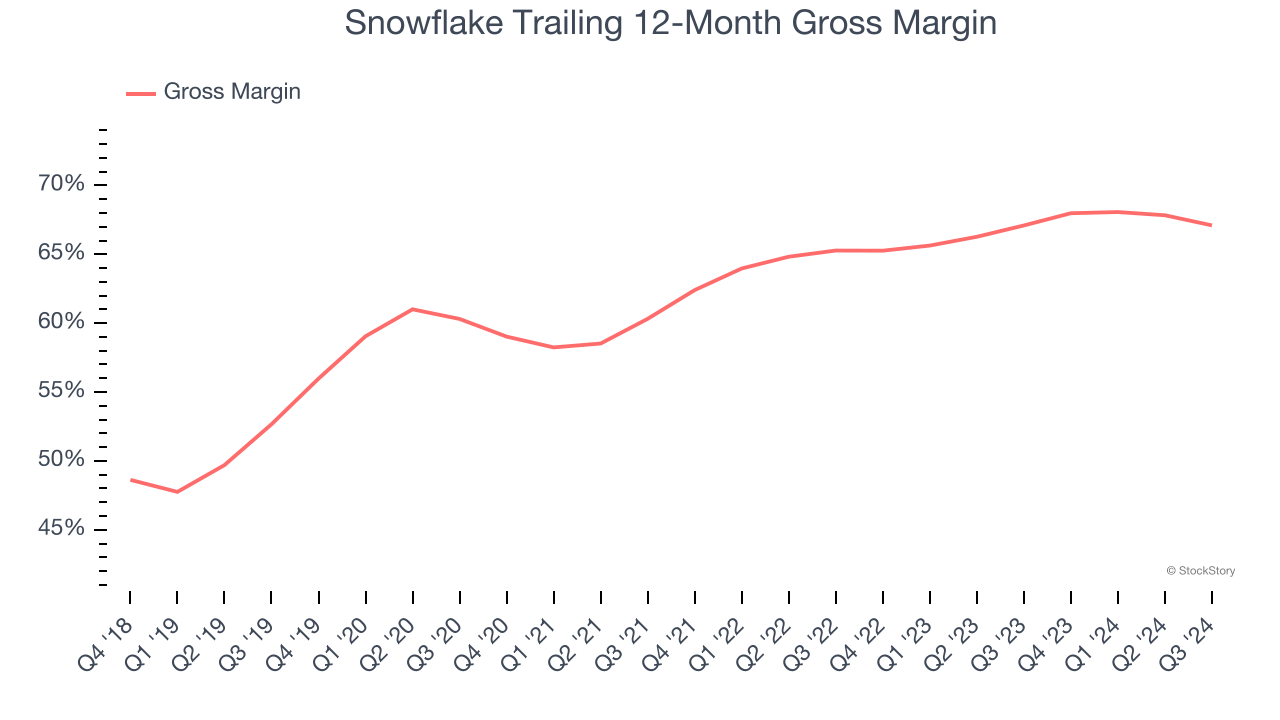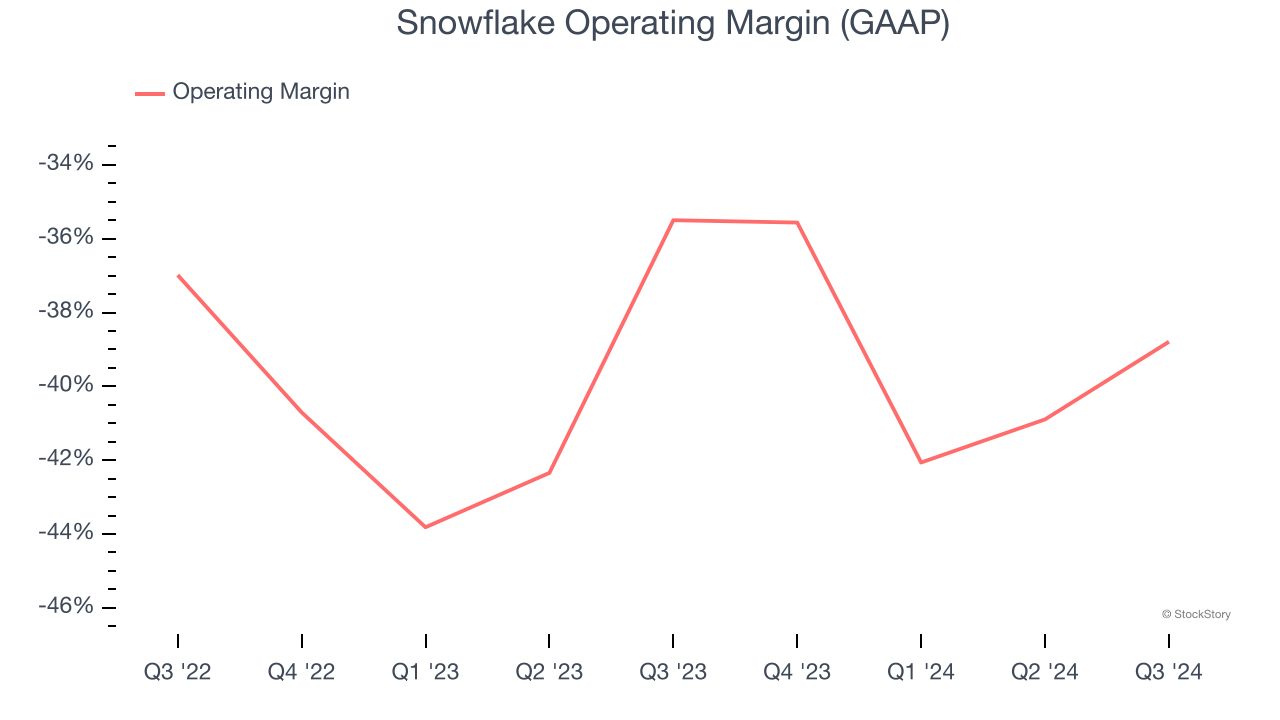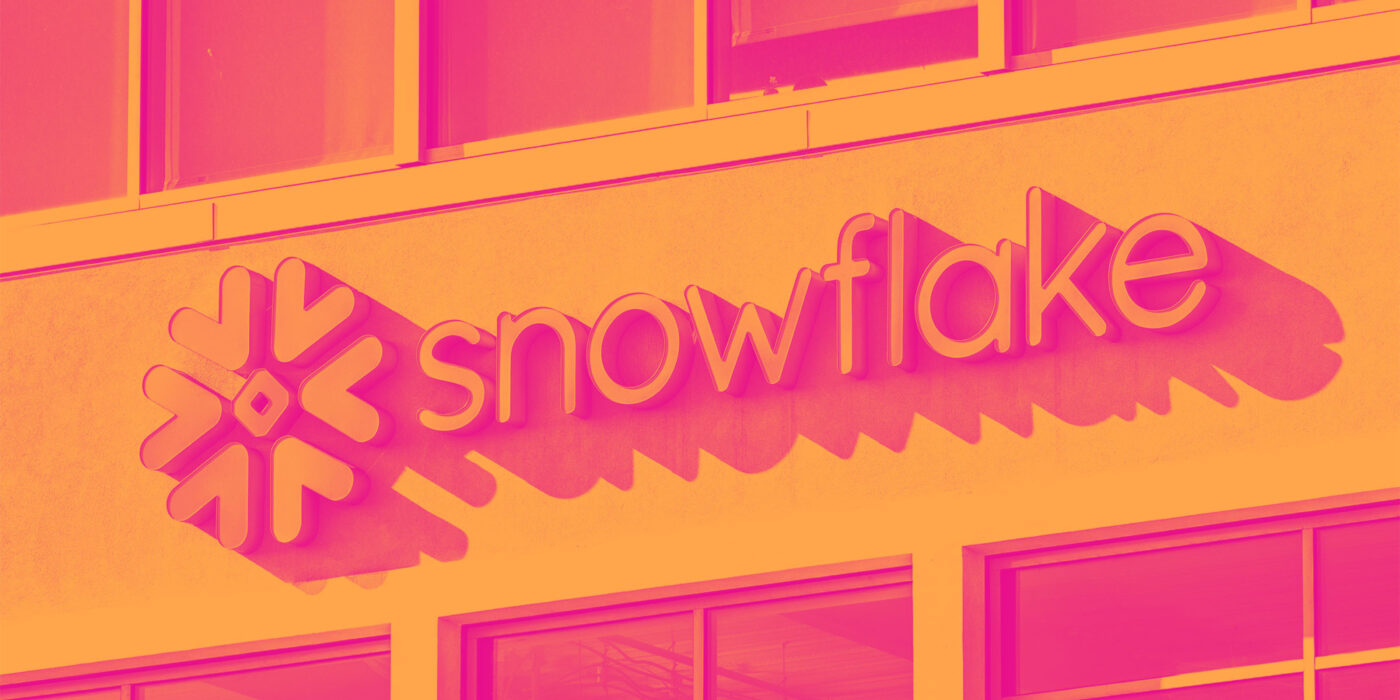Snowflake has had an impressive run over the past six months as its shares have beaten the S&P 500 by 23%. The stock now trades at $171.40, marking a 30.7% gain. This was partly due to its solid quarterly results, and the run-up might have investors contemplating their next move.
Is now the time to buy Snowflake, or should you be careful about including it in your portfolio? Get the full stock story straight from our expert analysts, it’s free.
Despite the momentum, we're sitting this one out for now. Here are two reasons why there are better opportunities than SNOW and a stock we'd rather own.
Why Is Snowflake Not Exciting?
Founded in 2013 by three French engineers who spent decades working for Oracle, Snowflake (NYSE:SNOW) provides a data warehouse-as-a-service in the cloud that allows companies to store large amounts of data and analyze it in real time.
1. Low Gross Margin Reveals Weak Structural Profitability
For software companies like Snowflake, gross profit tells us how much money remains after paying for the base cost of products and services (typically servers, licenses, and certain personnel). These costs are usually low as a percentage of revenue, explaining why software is more lucrative than other sectors.
Snowflake’s gross margin is worse than the software industry average, giving it less room than its competitors to hire new talent that can expand its products and services. As you can see below, it averaged a 67.1% gross margin over the last year. Said differently, Snowflake had to pay a chunky $32.90 to its service providers for every $100 in revenue. 
2. Operating Losses Sound the Alarms
Many software businesses adjust their profits for stock-based compensation (SBC), but we prioritize GAAP operating margin because SBC is a real expense used to attract and retain engineering and sales talent. This metric shows how much revenue remains after accounting for all core expenses – everything from the cost of goods sold to sales and R&D.
Snowflake’s expensive cost structure has contributed to an average operating margin of negative 39.4% over the last year. Unprofitable, high-growth software companies require extra attention because they spend heaps of money to capture market share. As seen in its fast historical revenue growth, this strategy seems to have worked so far, but it’s unclear what would happen if Snowflake reeled back its investments. Wall Street seems to be optimistic about its growth, but we have some doubts.

Final Judgment
Snowflake isn’t a terrible business, but it doesn’t pass our bar. With its shares topping the market in recent months, the stock trades at 13.8× forward price-to-sales (or $171.40 per share). At this valuation, there’s a lot of good news priced in - we think there are better investment opportunities out there. We’d suggest looking at Chipotle, which surprisingly still has a long runway for growth.
Stocks We Like More Than Snowflake
The Trump trade may have passed, but rates are still dropping and inflation is still cooling. Opportunities are ripe for those ready to act - and we’re here to help you pick them.
Get started by checking out our Top 5 Growth Stocks for this month. This is a curated list of our High Quality stocks that have generated a market-beating return of 175% over the last five years.
Stocks that made our list in 2019 include now familiar names such as Nvidia (+2,183% between December 2019 and December 2024) as well as under-the-radar businesses like Comfort Systems (+751% five-year return). Find your next big winner with StockStory today for free.
